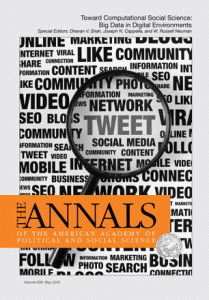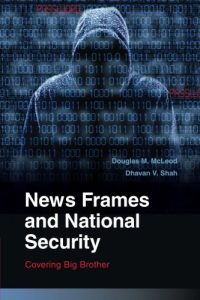The exponential growth of structured and unstructured social data has confronted social scientists with a unique challenge: How can researchers best use computational tools to analyze such data with the goal of understanding individuals and their interactions within social systems? The unprecedented availability of information on discrete behaviors, social expressions, personal connections, and social alignments provides insights on a range of phenomena and influence processes — from personality traits to political behaviors; from public opinion to relationship formation. This volume, edited by Dhavan Shah, Joseph Cappella, and Russ Nueman, explores some of the key issues confronting researchers who pursue computational social science in the age big data. [The ANNALS of the American Academy of Political and Social Science]
Available from Amazon.com
Did media coverage contribute to Americans’ tendency to favor national security over civil liberties following the 9/11 attacks? How did news framing of terrorist threats support the expanding surveillance state revealed by Edward Snowden? Douglas M. McLeod and Dhavan V. Shah explore the power of news coverage to render targeted groups suspicious and to spur support for government surveillance. They argue that the tendency of journalists to frame stories around individual targets of surveillance – personifying the domestic threat – shapes citizens’ judgments about tolerance and participation, leading them to limit the civil liberties of a range of groups under scrutiny and to support “Big Brother.” [Cambridge University Press]
Available from Amazon.com

